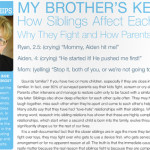The 7 most effective measures for overcoming stress, anxiety and panic
- Regular physical exercise has been proven time and again to be a stress-reducer and mind-calming activity. Start small and find something you like so it’s likely you will stick with it. Consistency is more important than intensity.
- Diaphragmatic breathing is a type of breathing which involves the diaphragm and not just the lungs. When you practice diaphragmatic breathing, the ratio between Oxygen and Carbon Dioxide in your blood changes. This has been shown to lower blood pressure and heartbeat and to contribute to an overall sense of calm and wellbeing.
- Progressive Muscle Relaxation tackles stress, anxiety and panic in the body, by tensing and then relaxing different muscle groups. The idea behind it is that the body aspires for balance and so when you tense a muscle for a while and then release it, the brain works to relax the muscle further. The mind cannot relax in a tense body but when you learn to relax your body, your mind follows.
- Mindfulness is a type of meditation focused on the here and now. It originated from ancient eastern and Buddhist philosophies thousands of years ago. Mindfulness was popularized in the west in the past few decades by Dr. Jon Kabat-Zinn from University of Massachusetts Medical School. Numerous academic studies have established the connection between the practice of mindfulness and decreased levels of stress and anxiety as well as an increased sense of wellbeing.
- Cognitive Restructuring is a part of Cognitive-Behavioral-Therapy (CBT). In Cognitive Restructuring (CR) you learn to track your anxiety-provoking thoughts and change them to become less catastrophic and more realistic. Both CBT and CR have been shown to decrease the intensity and frequency of anxiety and panic attacks.
- Vagus Nerve exercises have been developed only in recent years but have gained some recognition by research and clinical practice alike. The Vagus is the longest nerve in our body. It connects our brain to many important organs in our body including the heart, lungs and gut. If you have ever felt “butterflies” in your stomach, then you know first-hand how the Vagus nerve operates. During Vagus Nerve exercises, you work on increasing your Vagal tone. Increasing the Vagal tone activates the Parasympathetic nervous system, i.e., the part in our nervous system which promotes calmness and digestion.
- Psychotherapy, sometimes referred to as Talk Therapy, is a process of sharing your thoughts, feelings, behaviors, symptoms as well as your goals, hopes and wishes with a licensed therapist. Psychotherapy with a trained and experienced Registered Psychologist may include a few or all the above ways to overcome anxiety and panic attacks. Psychotherapy has been found to be highly effective for the treatment of anxiety and panic.
So, even though you may have some valid concerns about the state of the world or different aspects of your life, you can still have a better quality of life by working to reduce your own levels of stress and anxiety. You cannot control everything, but you can definitely cope and feel better when you are free of anxiety and panic. Please contact me for help reducing your stress and anxiety.
The Difference between fear, anxiety, and panic, and when to seek help
This article will clarify these issues for you. See it here.
I Can Help You Access Your Courage
If you are reading these lines chances are that you, or someone close to you, have been experiencing some distress. Whether these are feelings of sadness or hopelessness, anxiety, panic attacks, loss and grief or relationship difficulties, you are looking for information and, possibly, professional help.
Let me assure you that I appreciate how hard it must be to look for help and to make the decision to contact a therapist you don’t really know. It may also be scary to actually do something about your situation because that would mean taking a close and hard look at yourself, your patterns, your relationships and, possibly, your barriers to change. It takes courage and determination to change but I am sure you have it in you and, I can help you access it.
My mission is to empower my clients to overcome their life challenges effectively and achieve a sense of peace of mind, well-being and satisfaction by providing the highest quality of evidence-based therapy.







